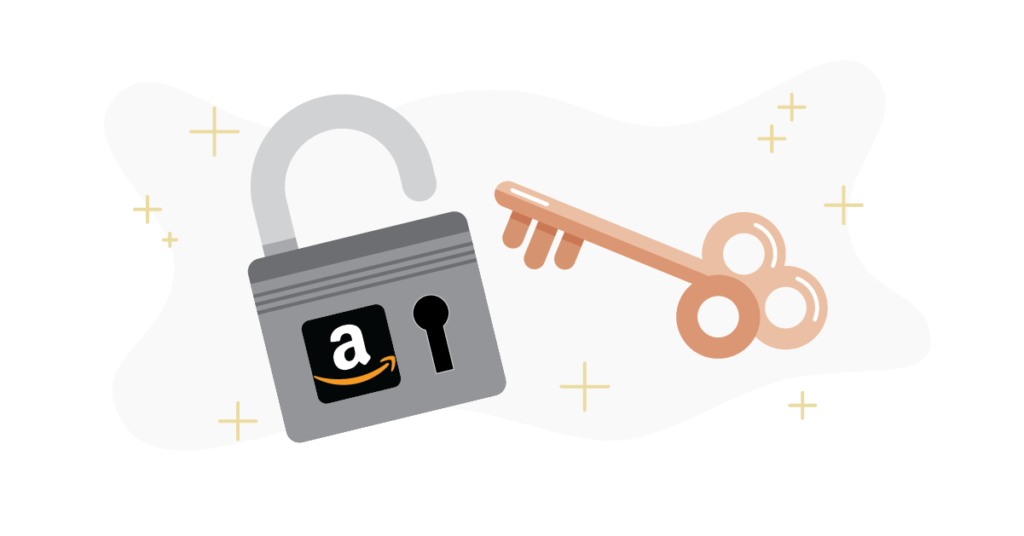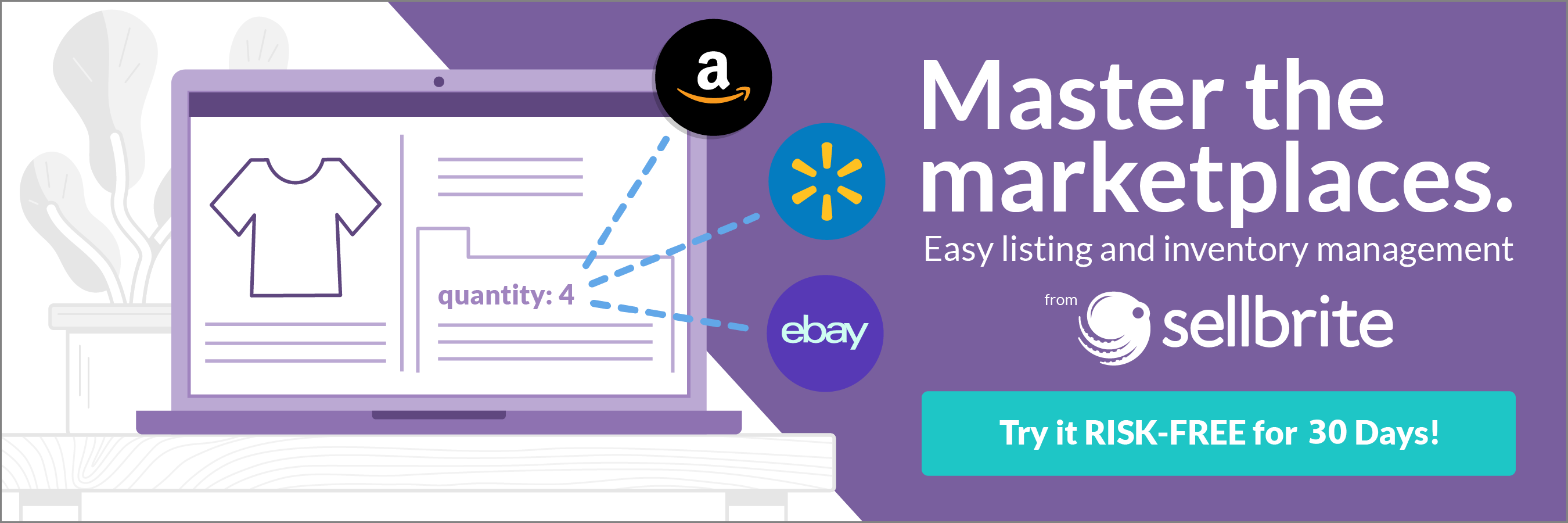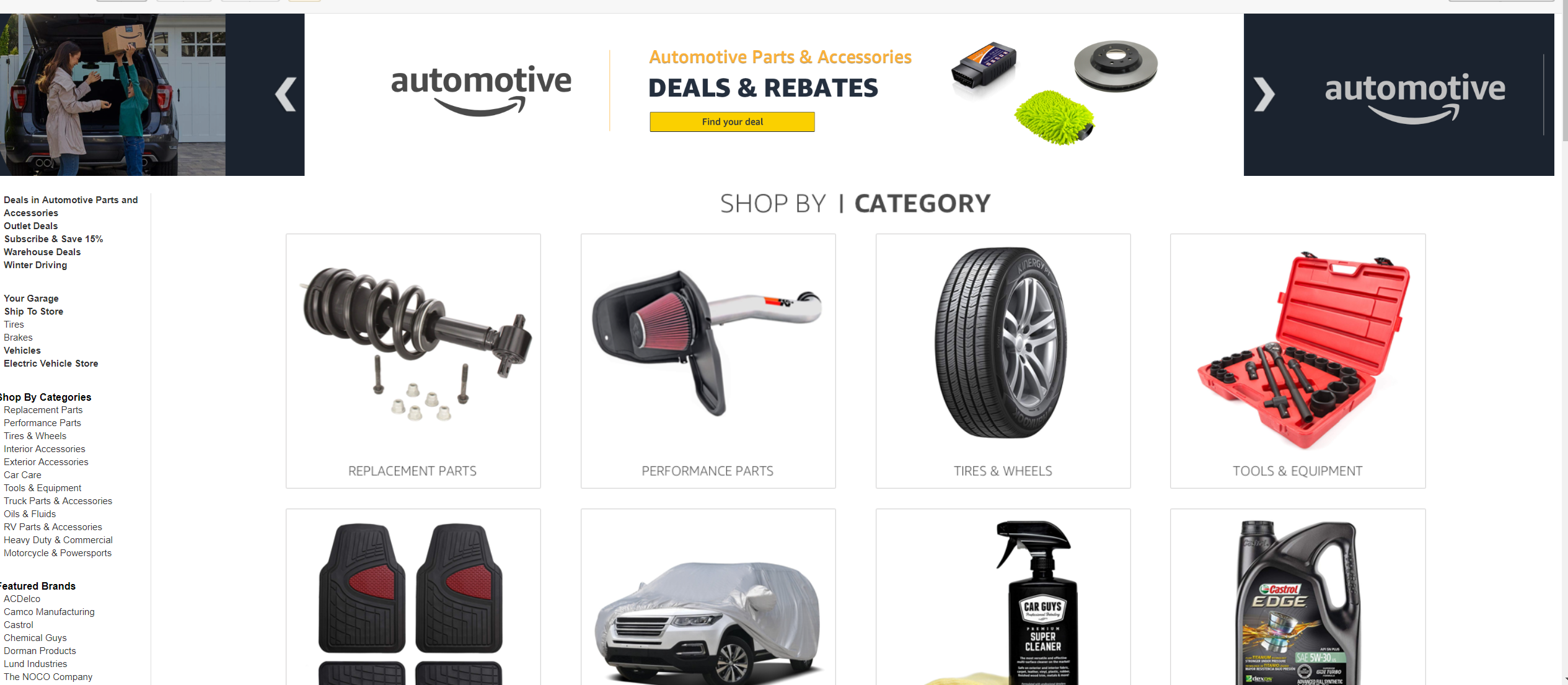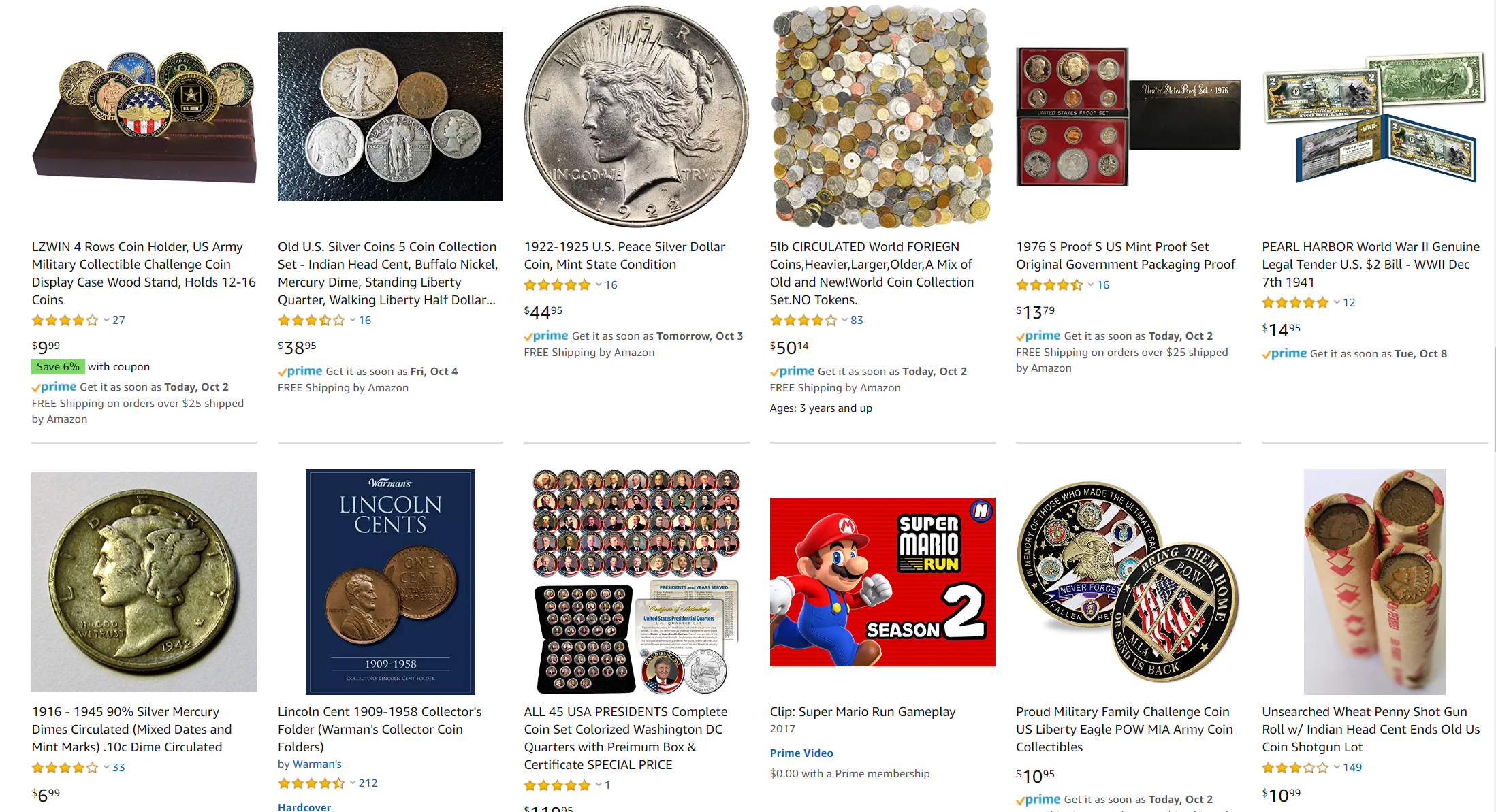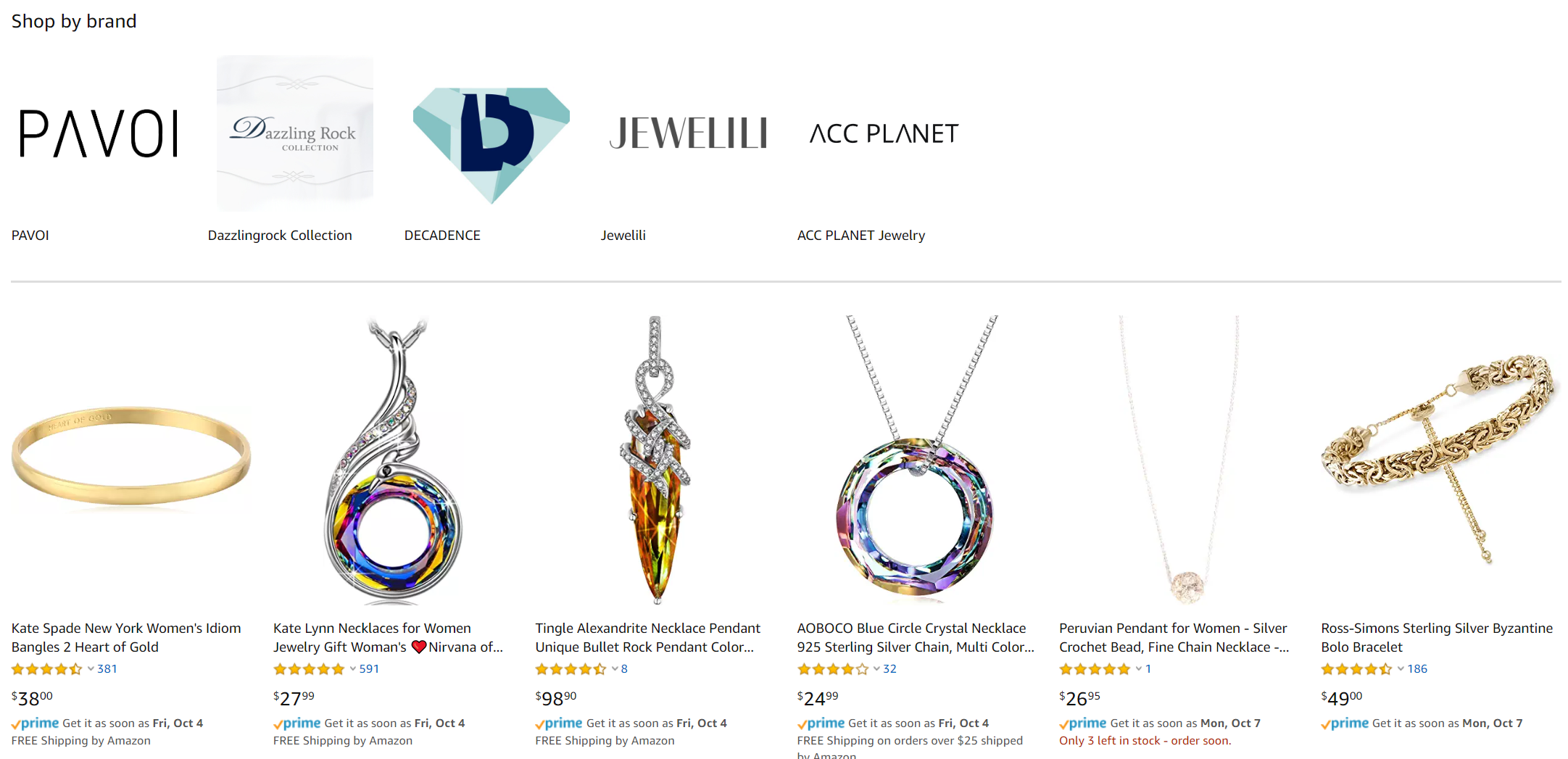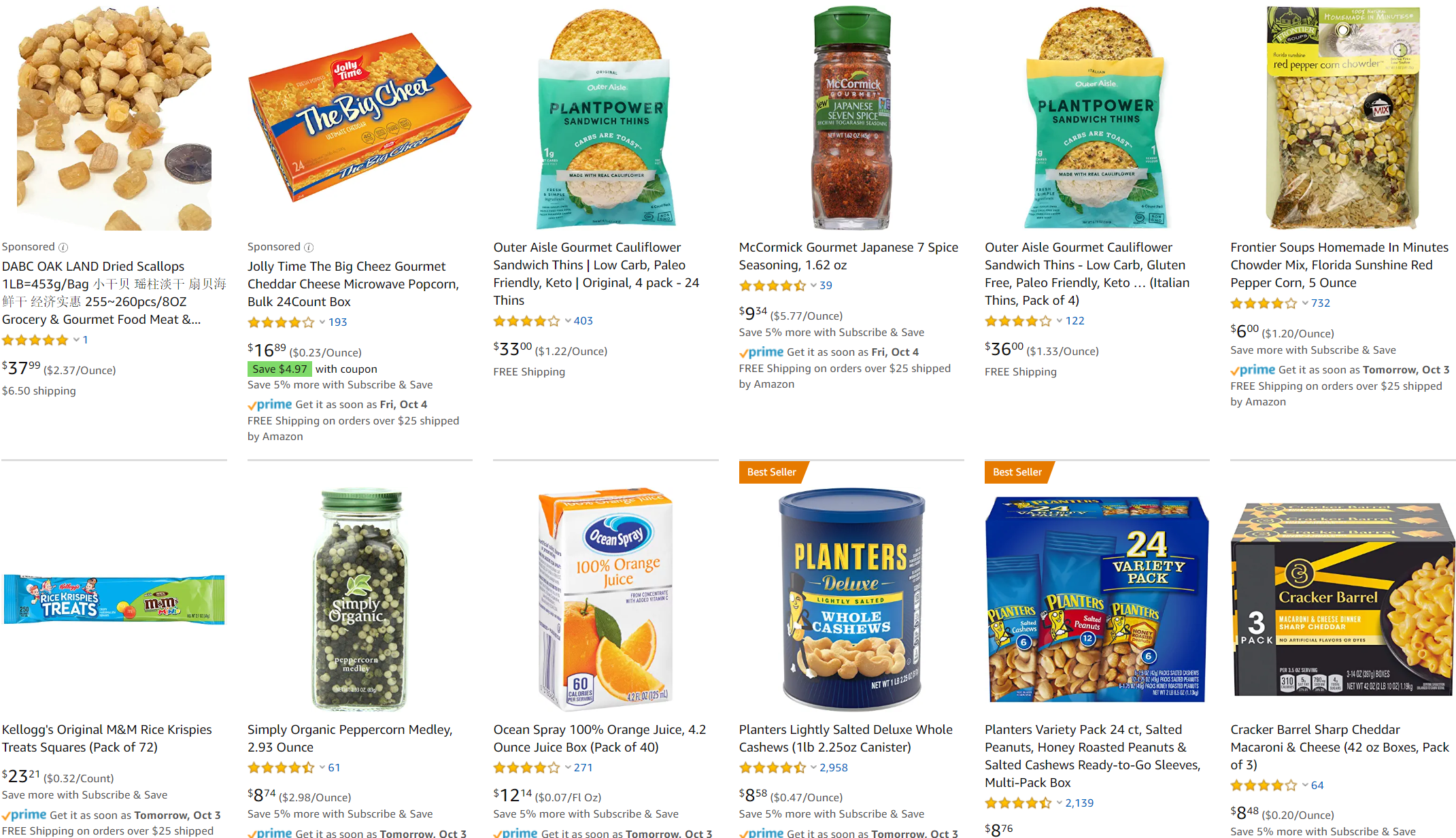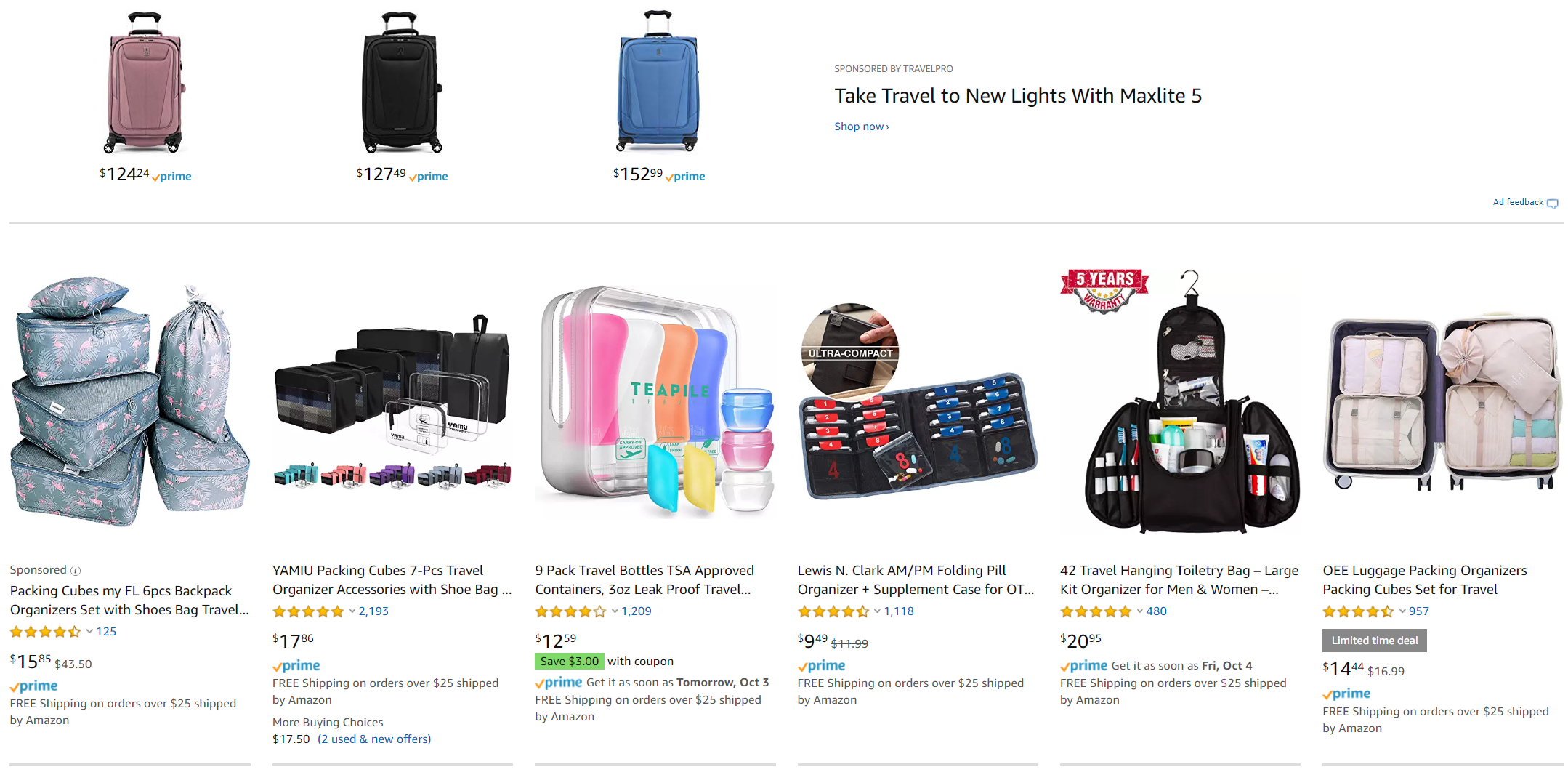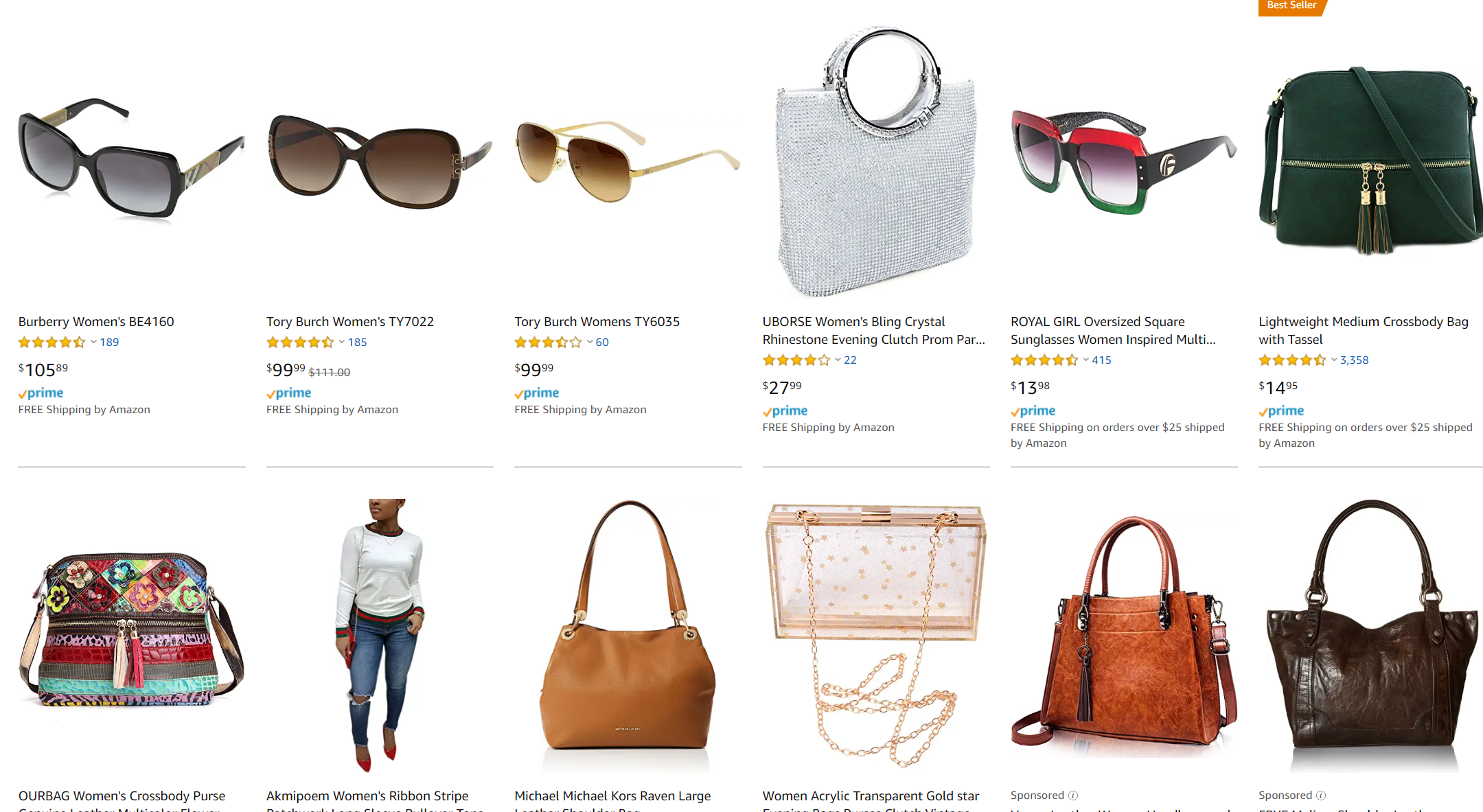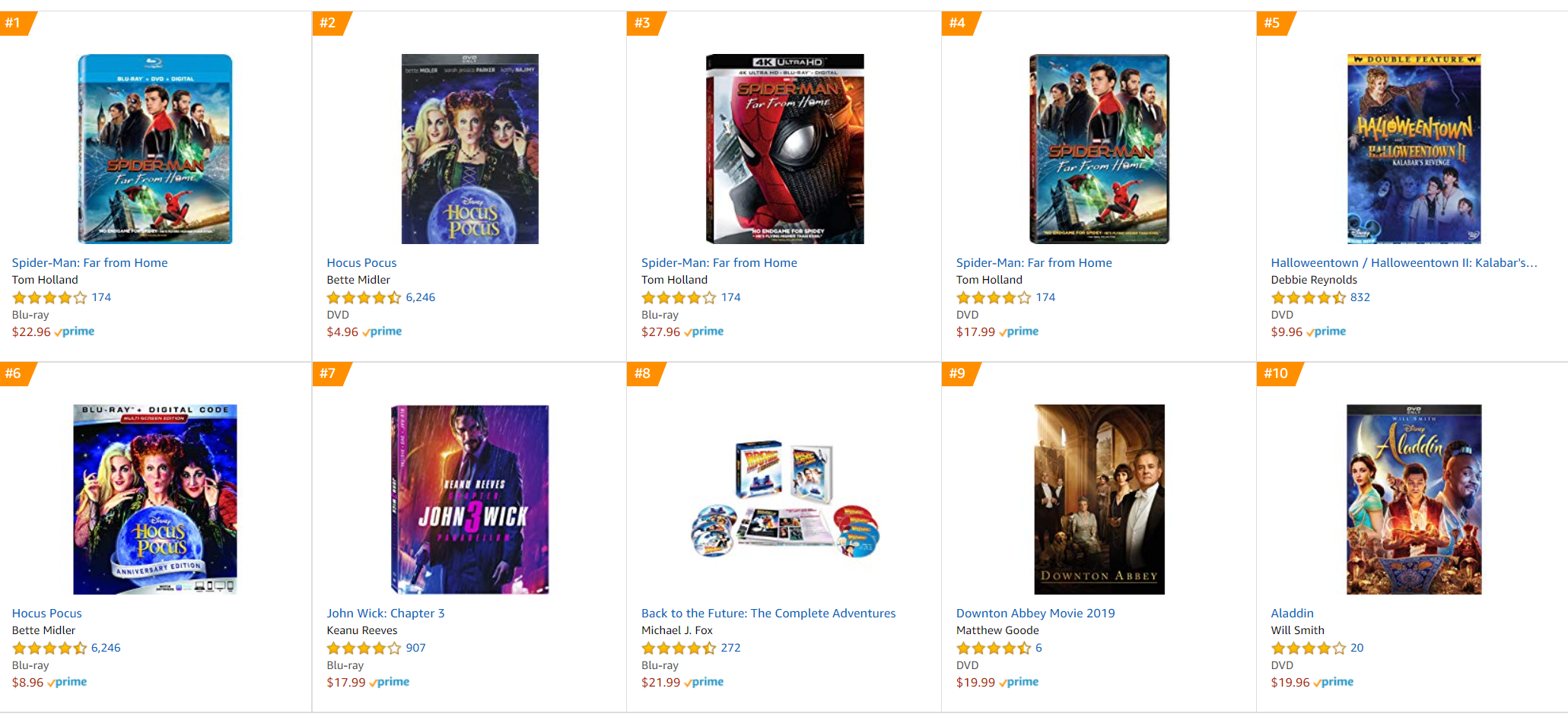Selling in a niche category can be difficult. You have to find an audience, build up a reputation, and then worry about actually selling. What if you could access a larger audience, say, 200 million monthly visitors?
If you get approval to sell in Amazon’s gated categories, this audience could be yours. But first, you need to know what the requirements are for your product’s category on Amazon and how to get approval.
What Are Amazon Gated Categories?
For many categories on Amazon, there’s no approval required. You can set up your profile, list your products under the appropriate category, and start selling. This isn’t the case for restricted or gated categories.
With Amazon gated categories, you have to request approval through Amazon and pass certain requirements. These requirements can vary from category to category but can include things like having a website, providing a certificate of authenticity, and having a recognized UPC.
Typically, Amazon gated categories are a higher cost, sensitive in nature, safety-related, rare, or collectible. These specialty items are typically items you’d find locked behind a case in a store or sold only by professionals that specialize in that particular area.
- Automotive & Powersports
- Business Products (B2B)
- Collectible Coins
- Fashion Jewelry
- Fine Jewelry
- Fine Art
- Grocery & Gourmet Food
- Industrial & Scientific
- Luggage & Travel Accessories
- Professional Services
- Shoes, Handbags & Sunglasses
- Sports Collectibles
- Video, DVD & Blu-ray
- Watches
Once sellers have credibility and pass the criteria for a particular gated category, they can then sell in that category like they would in any other Amazon category. Your credibility can build naturally over time as you fulfill customer orders and offer great service, whether you’re on Amazon or another site beforehand.
Now, it’s time to learn why products are gated, and then tackle the specifics for approval in each category.
Why are products gated?
We’ve established that gated products are typically more niche or expensive, but why exactly are they gated when others aren’t? There are a few reasons, many of which act in favor of Amazon and the customer.
- Gated products are at risk for fraud: To put it simply, certain markets are more prone to fraud and carry a higher risk. For example, sports memorabilia is rife with fraud, as anywhere from 50-80% of products sold are fraudulent.
- Restricted categories protect Amazon and customers: Few things hurt a company’s reputation like a bad customer experience. By gating certain categories, Amazon is protecting their reputation from the hits that come with selling fraudulent or low-quality products. They’re also protecting customers from buying knock-off goods, which again, helps their own brand as well. It’s a win-win for Amazon.
- There are safety concerns: Some gated products carry certain safety concerns or health risks. A poor-quality or imitation automotive part could result in someone’s car not operating properly, while homemade wine could make someone sick. In both of these examples, the industries are heavily regulated, so it makes sense that Amazon would regulate these categories as well.
Ultimately, gated products boil down to building trust between the customer, the seller, and Amazon as a marketplace. Now, let’s take a look at how each of the gated categories operates and what’s required to get into them.
How to Sell in Amazon Gated Categories
If you want to sell in a gated category, there are a number of steps you need to take. These steps vary depending on the type of product, so knowing your product niche is important as well.
When you read the upcoming category requirements, take careful note, as failure to follow the approval steps for your category can result in you being denied access. If you’re planning on selling in multiple Amazon gated categories, consider making a spreadsheet or checklist for each one to ensure you don’t miss any of the steps.
Also, in all cases, you’ll want to make sure your main product photo features a white background and only the product being advertised. For any secondary pictures, you can be more creative and show the product being used, and so on.
For any category listed as “Professional Sellers Only,” you must be on the Amazon Professional plan. This comes with a monthly fee but does offer some additional features over the free Individual Plan, not to mention it’s required for select Amazon gated categories.
Automotive & Powersports
- Approval Required
- Professional Sellers Only
Automotive and powersports is a broad term that specifically applies to new tires, certified catalytic converters, automotive batteries, and EPA-certified portable fuel containers. If you have products that fall within these confines, you need the following to be a seller on Amazon:
- You must either have an independent website that can be reviewed by Amazon or already be on the professional selling plan with an account in good standing.
- If the automotive parts manufacturer uses UPCs, you must include these UPCs when listing the products on Amazon.
- You need to ensure your automotive products follow all laws and regulations — local, state, federal, and international.
- If an automotive product is refurbished, it must be clearly stated in the description and be covered by a manufacturer or remanufacturer warranty. The type of warranty and its coverage must also be clearly stated in the description.
- Product photos and the description must be appropriate for all ages and contain no offensive material.
Business Products (B2B)
- Professional Sellers Only
Amazon Business allows sellers of business-to-business (B2B) services to sell on the Amazon platform. With more than half of the Fortune 100 companies on Amazon Business, you’re not alone in wanting to sell B2B on Amazon. To qualify for Amazon Business, you need to take care of the following:
- An Amazon Professional seller account is required for Amazon Business.
- Once you have an Amazon Pro account, you’ll need to set up a business profile, complete with your company’s story and so on.
- After creating your profile, you’ll want to set up your product listings via Amazon’s builder. Then, start promoting and selling.
Collectible Coins
- Approval Required
- Professional Sellers Only
Unlike some of the categories on this list, Amazon limits how many new sellers can join the collectible coin category. This is for quality control reasons, as any market for collectible items is an opportunity for fraudulent activity. This means you may not be approved for this category even if you meet the following criteria:
- A link to your company’s site and the products you want to sell needs to be readily available for review by Amazon.
- All of your coins must come from a legally recognized government mint or be given a stamp of approval by approved graders.
- You must be a member of the Professional Coin Grading Service (PCGS), Industry Council for Tangible Assets (ICTA), Professional Numismatists Guild (PNG), or Numismatic Grading Corporation/Paper Money Guaranty (NGC/PMG).
- At least 70% of your store’s inventory needs to be graded by PCGS or NGC or from a government mint that’s legally recognized. If you have a coin that’s directly from a government mint, it must be in the original packaging.
- If you’re a dealer of precious metals, precious jewels, or precious stones as defined under 31 C.F.R. Part 1027, you need to have an anti-money laundering program in place. You must also provide copies of this program to Amazon if and when they request it.
- Any authenticated or professionally graded coins are only acceptable if it’s through the PCGS or NGC.
- Any coins listed at $1,500 or higher must be graded and approved by the NGC or PCGS before they’re listed on your store.
- If a coin is ungraded, it must be made clear in the description that it’s been graded by the seller. If it’s in the original government packaging, you can list it as being in original government packaging.
- Tubes, bags, or other containers of unsearched coins aren’t permitted for sale on Amazon.
Fashion Jewelry
- Professional Sellers Only
Fashion jewelry, not to be confused with fine jewelry, is a category available to professional sellers only. Fashion jewelry items are typically lower cost than fine jewelry, whereas fine jewelry is often made of precious metals, gems, and stones.
If you want to sell in the fashion jewelry section, you need to check the following boxes:
- You must sell new products — used products are not allowed.
- Your fashion jewelry must be authentic and have a warranty.
- Any jewelry without a brand must be clearly detailed on a seller-created page.
- Products from major brands need to have the manufacturer’s UPC code listed on the product page.
- Fashion jewelry must be clearly categorized as fashion, not fine, jewelry. Your products must also meet Amazon Jewelry Quality Assurance Standards, as well as FTC jewelry guidelines and other regulations.
- Product photos need to meet Amazon’s jewelry-specific standards.
- Product descriptions and photos can’t contain any inappropriate material or content.
Fine Jewelry
- Approval Required
- Professional Sellers Only
The requirements for fine jewelry are the same as fashion jewelry. If you’re selling jewelry that uses fine metals, gems, and stones, you’re likely a candidate for the fine jewelry category. Go over the requirements for fashion jewelry, make sure your jewelry categorizes as fine jewelry, and then await Amazon’s approval.
Fine Art
- Approval Required
- Professional Sellers Only
The fine art category requires case-by-case approval from Amazon. If you have any one-of-a-kind photos, paintings, lithographs, or other pieces of fine art, and you’re interested in selling on Amazon, you’ll need to contact Amazon and get the approval process moving.
While they don’t list specifics, be prepared to provide any certificates of authenticity for any pieces you didn’t create. If you have an existing storefront elsewhere, you’ll want to make sure you have a link or credentials related to that store ready as well.
Grocery & Gourmet Food
- Approval Required
- Professional Sellers Only
The grocery & gourmet food category requires that you be an Amazon Pro Merchant and requires approval. Furthermore, you need to do the following:
- Provide Amazon with any requested information and documentation regarding the products you wish to sell. Once you’ve begun the approval process, you’ll be contacted by Amazon regarding further steps.
- You can only sell new products in the grocery & gourmet food category. No used items are permitted.
Industrial & Scientific
- Approval Required
- Professional Sellers Only
Like the collectible coin category, the industrial & scientific category is limited, meaning Amazon won’t approve even qualified new sellers in some cases. If you want to get on the waiting list and push for approval, you’ll need to do the following:
- You need to be a current subscriber to the Amazon Pro selling plan.
- Any products you list in this category must abide by local, state, federal, and international regulations.
- Products within industrial and scientific need to meet the North American product safety standards to ensure the customer is getting a quality product. Read the U.S. Consumer Product Safety Commission guidelines for more information.
Luggage & Travel Accessories
- Professional Sellers Only
If you want to sell luggage and travel accessories on Amazon, you need to have an Amazon Pro Merchant account before moving forward. Then, you need to ensure the following is taken care of:
- Any luggage or travel accessories made by major brands need to use the manufacturer’s UPC and have it listed on the page.
- Knock-off products aren’t permitted. Any luggage or travel accessories must be authentic products.
- Products in this category have to be new. No used products are permitted.
- Product listings in luggage & travel must follow clothing image guidelines, which can be found here.
Professional Services
- Approval Required
- Service Professionals Only
The professional services category is different from all the other Amazon gated categories in that it’s available only to qualified service professionals and has an extensive verification process through Amazon’s Selling Services page.
If you’re a professional tradesperson and you want to sell your services on Amazon, you’ll need to have the following:
- You’ll need general liability insurance with a limit of $1,000,000 per occurrence. Be ready to provide proof of insurance when signing up.
- You need to have proper licensing and certifications in your trade — plumber, electrician, HVAC, general contractor, etc.
Shoes, Handbags & Sunglasses
- Professional Sellers Only
As is the case with many of the categories listed here, the shoes, handbags & sunglasses category requires an Amazon Pro Merchant account. Beyond that, you’ll need to take care of the following to sell in this category:
- You need to have a website or readily available image host where Amazon can review the products you’re looking to sell.
- If you’re selling major brand products, the manufacturer’s UPC needs to be available and used on your product listings.
- No knock-off or counterfeit products are allowed in shoes, handbags & sunglasses. All products within this category need to be authentic.
- Product descriptions and images can’t contain anything lewd or offensive and must adhere to general Amazon guidelines.
Sports Collectibles
- Approval Required
- Professional Sellers Only
While every category on this list requires some level of preparation, the sports collectibles category is one of the most vague and difficult categories to get into. If you have sports collectibles or memorabilia and want to sell on Amazon, you’ll need to do the following:
- Contact Amazon directly for approval to sell in sports collectibles, as this category is handled on a case-by-case basis.
- Depending on the league associated with your particular collectibles, you may need to seek out the approval of the NFL, MLB, etc., to sell that specific item.
- Make sure you have certificates of authenticity for any sports collectibles, as these will be required to verify the item is authentic.
Video, DVD & Blu-Ray
- Approval Required
- Professional Sellers Only
If you want to sell any kind of videos, DVDs, or Blu-ray Discs, Amazon has just the category. If you don’t have an Amazon Pro account right now, you’ll need to upgrade within 30 days of being approved by Amazon. Beyond that, you’ll need to meet the following criteria to be approved:
- A cancellation rate of 2.5% or less
- A late shipment rate no greater than 4%
- An order-defect rate (ODR) no greater than 1%
Watches
- Approval Required
- Professional Sellers Only
If you have an Amazon Pro account and you want to sell watches, the requirements are similar to the shoe and handbag category. To sell in the watches category on Amazon, you’ll need to ensure you have the following:
- You’ll need a website or available image host where Amazon can review the products you want to sell.
- Any watches sold must be new, as no used products are allowed.
- Major brand watches need to have the manufacturer UPC included and on the product listing.
- If the watch is covered by a manufacturer’s warranty, it must be stated in the listing. If it’s not covered, Amazon will offer coverage through Asurion.
- Any watches on Amazon must be authentic and not counterfeit.
- Images must adhere to Amazon’s best practices and contain a white background with no model or conflicting products displayed.
- Product listings can’t contain anything offensive or inappropriate for a general audience.
What to Do If You’re Denied Access
If you were denied, don’t panic. Being denied access to sell in Amazon gated categories can happen to anyone for a number of reasons. It’s entirely possible the category is limited, and you simply have to wait until there’s an opening. Otherwise, there are a number of things you can alter or strengthen over time to increase the likelihood you’re approved.
As an added perk, these things will help your business in general:
- History: What kind of business history and sales history do you have? If you’re a new seller or product manufacturer, you may not have enough data to back your application to join a gated category. While waiting for approval, or even if you’re denied, continue working on your company’s sales history and drive sales.
- Suppliers: Do you have suppliers that send you products to sell? If so, it’s possible that Amazon doesn’t like your supplier(s) and their reputation. Research your current suppliers to make sure they don’t have a questionable reputation in the industry. If you’re looking for new suppliers, research them beforehand as well.
- Your product: Is your product of questionable quality or ethics? It’s possible that Amazon may not like your product. Examine others in the category you want to get into and see where yours differs. If there are any big discrepancies between your product and that of your competitors, this could be what’s holding you back.
- Reputation: If you’re brand new, you may not have enough of a reputation. Continue selling elsewhere and build up your reputation as a great seller. If you have a bad reputation, some reputation management is in order. As a best practice, it’s a good idea to encourage your customers to leave a review after purchasing from your company.
Building Your Business Behind the Gates
Amazon gated categories can be a great source of revenue but do require extra work to break into. Pay close attention to the requirements for the category you want to enter, work toward those requirements, and know that the effort could result in substantial growth for your business and an excited, new audience ready to buy from you.
If you want to branch out and don’t know where to start, read up on the most profitable Amazon categories and see if any of them sound like the right fit for you!
